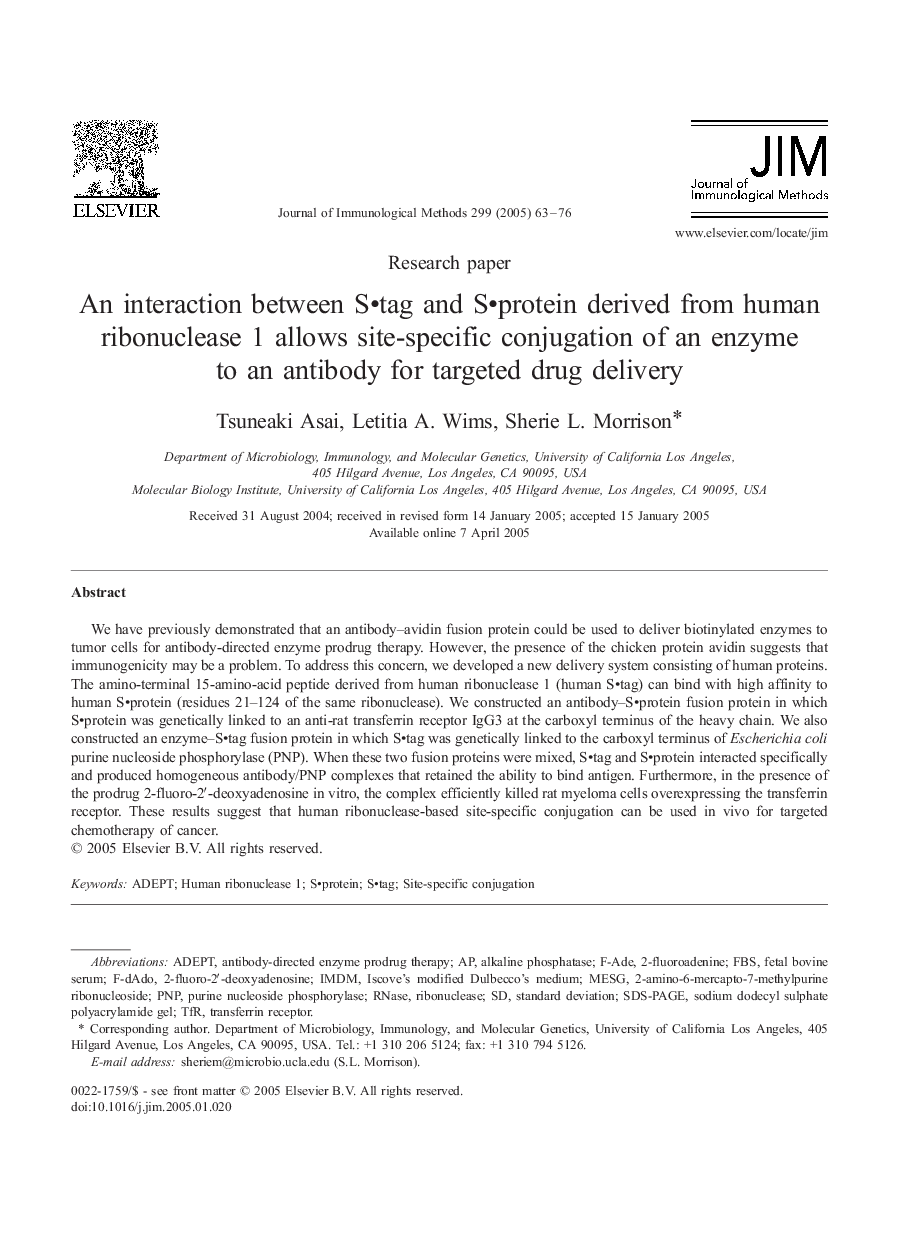| Article ID | Journal | Published Year | Pages | File Type |
|---|---|---|---|---|
| 9902331 | Journal of Immunological Methods | 2005 | 14 Pages |
Abstract
We have previously demonstrated that an antibody-avidin fusion protein could be used to deliver biotinylated enzymes to tumor cells for antibody-directed enzyme prodrug therapy. However, the presence of the chicken protein avidin suggests that immunogenicity may be a problem. To address this concern, we developed a new delivery system consisting of human proteins. The amino-terminal 15-amino-acid peptide derived from human ribonuclease 1 (human S
- tag) can bind with high affinity to human S
- protein (residues 21-124 of the same ribonuclease). We constructed an antibody-S
- protein fusion protein in which S
- protein was genetically linked to an anti-rat transferrin receptor IgG3 at the carboxyl terminus of the heavy chain. We also constructed an enzyme-S
- tag fusion protein in which S
- tag was genetically linked to the carboxyl terminus of Escherichia coli purine nucleoside phosphorylase (PNP). When these two fusion proteins were mixed, S
- tag and S
- protein interacted specifically and produced homogeneous antibody/PNP complexes that retained the ability to bind antigen. Furthermore, in the presence of the prodrug 2-fluoro-2â²-deoxyadenosine in vitro, the complex efficiently killed rat myeloma cells overexpressing the transferrin receptor. These results suggest that human ribonuclease-based site-specific conjugation can be used in vivo for targeted chemotherapy of cancer.
- tag) can bind with high affinity to human S
- protein (residues 21-124 of the same ribonuclease). We constructed an antibody-S
- protein fusion protein in which S
- protein was genetically linked to an anti-rat transferrin receptor IgG3 at the carboxyl terminus of the heavy chain. We also constructed an enzyme-S
- tag fusion protein in which S
- tag was genetically linked to the carboxyl terminus of Escherichia coli purine nucleoside phosphorylase (PNP). When these two fusion proteins were mixed, S
- tag and S
- protein interacted specifically and produced homogeneous antibody/PNP complexes that retained the ability to bind antigen. Furthermore, in the presence of the prodrug 2-fluoro-2â²-deoxyadenosine in vitro, the complex efficiently killed rat myeloma cells overexpressing the transferrin receptor. These results suggest that human ribonuclease-based site-specific conjugation can be used in vivo for targeted chemotherapy of cancer.
Keywords
Related Topics
Life Sciences
Biochemistry, Genetics and Molecular Biology
Biotechnology
Authors
Tsuneaki Asai, Letitia A. Wims, Sherie L. Morrison,
